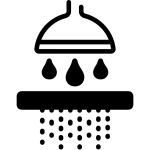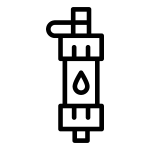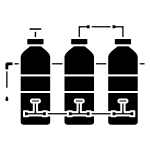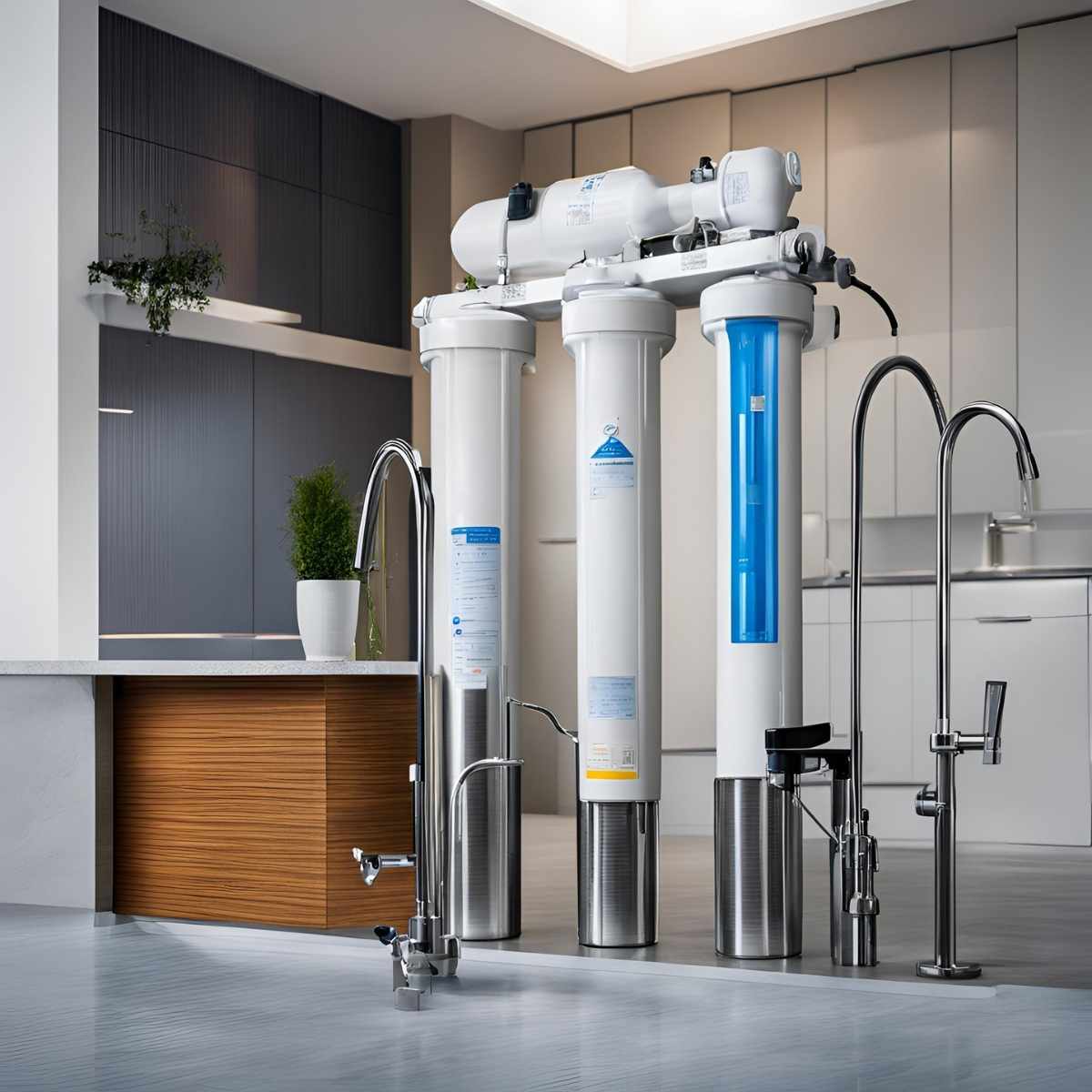When it comes to clean drinking water, we all want the best for our health and families. But with so many filtration options on the market, it’s important to know what exactly your water filter removes—especially when it comes to fluoride. One of the most popular brands in households is Brita, known for its convenient and affordable filters.
But do Brita water filters filter out fluoride? That’s the big question—and in this post, we’ll break it down for you. We’ll explain how fluoride gets into your water, why it’s controversial, and whether your Brita filter can help remove it.
2. What is Fluoride?
Fluoride is a naturally occurring mineral found in rocks, soil, and water. It’s commonly added to municipal tap water across the world, including the United States and many parts of Europe, as a preventive measure against tooth decay.
Natural vs. Added Fluoride
- Natural fluoride: Present in groundwater and some foods.
- Added fluoride: Artificially introduced into drinking water supplies in controlled doses.
3. Why is Fluoride in Tap Water?
Since the 1940s, governments have added fluoride to public water supplies to help reduce cavities and promote dental health. According to the CDC, water fluoridation has led to a 25% reduction in tooth decay among children and adults.
Sources of Fluoride in Water
- Municipal water fluoridation
- Industrial waste contamination
- Natural deposits in the earth
However, despite its dental benefits, not everyone agrees that fluoride belongs in drinking water.
4. The Health Debate: Is Fluoride Safe or Harmful?
The fluoride debate is controversial, with both strong advocates and critics. Here’s a quick look at both sides:
Potential Benefits
- Helps prevent tooth decay
- Strengthens tooth enamel
- Cost-effective public health measure
Potential Risks
- Overexposure can lead to dental fluorosis (white spots on teeth)
- Linked to skeletal fluorosis in extreme cases
- Studies suggest potential links to neurological issues
- Some research raises concerns about possible thyroid and kidney problems
Because of these concerns, many people are looking for ways to filter fluoride out of their water—which brings us to Brita.
5. How Water Filters Work
Water filters use various methods to remove impurities:
- Activated carbon: Absorbs contaminants like chlorine, sediment, and some pesticides.
- Reverse osmosis (RO): Removes a wide range of particles, including fluoride.
- Ion exchange: Trades unwanted ions (like calcium) for hydrogen or sodium ions.
- Distillation: Boils water, then condenses the steam, leaving most contaminants behind.
Each method targets different contaminants. So, what does Brita use?
6. What Does a Brita Water Filter Remove?
Brita water filters primarily use activated carbon and ion exchange resin. Their standard filters remove:
- Chlorine (taste and odor)
- Mercury
- Cadmium
- Copper
- Zinc
- Lead (in Longlast+ and Elite filters)
These filters are designed to improve taste, smell, and safety—but they have limitations when it comes to certain contaminants.
7. Do Brita Water Filters Filter Out Fluoride?
The short answer: No, Brita filters do not remove fluoride.
Brita’s standard and advanced filters, including their Longlast+ (Elite) and Stream filters, are not designed to remove fluoride. This is clearly stated on Brita’s website and in their product specifications.
Why Not?
Brita filters use activated carbon, which is excellent for removing chlorine, odors, and some heavy metals—but ineffective against fluoride. Removing fluoride requires more advanced filtration technology such as reverse osmosis or activated alumina.
Misconceptions
Some people assume that any water filter will remove everything harmful, but that’s not true. Brita filters do not claim to filter fluoride, and consumers should be aware of this if fluoride removal is a priority.
8. Water Filters That Do Remove Fluoride
If you’re serious about removing fluoride from your drinking water, here are some effective options:
1. Reverse Osmosis (RO) Filters
RO systems force water through a semi-permeable membrane that blocks fluoride and other contaminants.
- Pros: Highly effective (removes up to 95-97% of fluoride)
- Cons: Expensive, slower, wastes some water
2. Activated Alumina Filters
These filters use aluminum oxide to attract and remove fluoride ions.
- Pros: Removes 90-95% of fluoride
- Cons: Must be replaced regularly; slower flow rate
3. Distillation Systems
Boils water and collects the steam, leaving most contaminants behind—including fluoride.
- Pros: Very effective
- Cons: Time-consuming and energy-intensive
At Cuoll, we offer a variety of fluoride-filtering systems, including reverse osmosis and advanced water purifiers. Explore our collection for reliable options tailored to your needs.
9. Alternative Ways to Remove Fluoride from Water
Besides using water filters, here are a few other methods:
- Bottled water (fluoride-free) – Some brands offer non-fluoridated options.
- Spring water – Naturally low in fluoride, depending on the source.
- DIY distillers – Can be set up at home, though not always convenient.
Note: Boiling water does not remove fluoride—in fact, it may concentrate it further.
10. Is Fluoride-Free Water Worth It?
Whether you should filter fluoride depends on your personal health goals and local water supply. For most people, the fluoride in tap water is within safe limits. However, if you’re concerned about overexposure—especially for children—it may be wise to invest in a fluoride-removing system.
You may want fluoride-free water if:
- You already use fluoride toothpaste
- You have kidney or thyroid issues
- You are concerned about potential neurotoxicity
- You follow a natural or holistic health lifestyle
11. Best Water Filter Options at Cuoll
At Cuoll, we offer high-quality water filtration solutions that go beyond Brita’s capabilities. Our collection includes:
1. Cuoll Premium RO Water Purifier
- Removes fluoride, chlorine, heavy metals
- Multi-stage filtration
- Ideal for families
2. Cuoll Activated Alumina Filter System
- Specifically designed for fluoride
- Easy to install
- Perfect for countertop use
3. Cuoll Whole House Filtration Unit
- Covers the entire home
- Removes fluoride, sediment, chlorine
- Long filter lifespan
4. Shower Filters
- Removes chlorine and fluoride from shower water
- Protects skin and hair
Explore our full Water Filter Collection for the perfect fit for your needs. Enjoy fast delivery, affordable pricing, and top-rated customer service.
12. Final Thoughts
To recap, Brita water filters do not filter out fluoride. While Brita is great for removing chlorine, lead, and bad odors, it is not effective against fluoride. If you’re concerned about fluoride in your drinking water, consider investing in a reverse osmosis system, activated alumina filter, or other fluoride-removing solutions—many of which are available right here at Cuoll.
Your health is worth the investment. Choose a filter that matches your goals, and drink water you can trust.
13. Frequently Asked Questions (FAQs)
Q1: Is fluoride dangerous to drink?
In small amounts, fluoride is considered safe and even beneficial. However, excessive intake can lead to health issues.
Q2: Can boiling water remove fluoride?
No. Boiling water may actually increase fluoride concentration due to evaporation.
Q3: Which water filter removes 100% of fluoride?
No filter removes 100%, but reverse osmosis and activated alumina filters can remove up to 95-97%.
Q4: Are Brita filters good for any contaminants?
Yes, Brita filters are effective at removing chlorine, lead, copper, mercury, and improving water taste.
Q5: Where can I buy a fluoride filter online?
Check out Cuoll’s collection of advanced water filters designed to remove fluoride and other contaminants.








